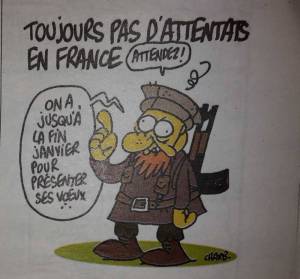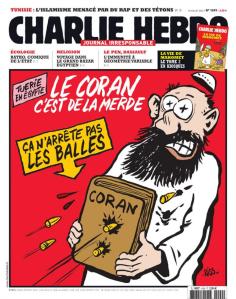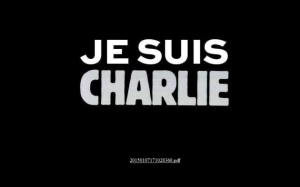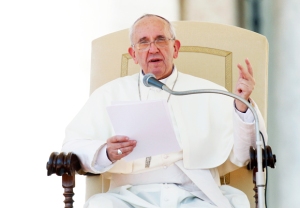“They must have seen this coming.” Hearing this statement from a friend of mine in response to the fatal attack on the editorial staff of the satirical magazine, Charlie Hebdo, I was eager to hear the logic behind it. “They’ve had death threats continuously sent to their door, along with a firebomb attack in 2011. They were aware of the danger they were in, yet they continued to persevere with their offensive publications to prove a point. Was it really worth it?” While easy to explain that no form of journalism should ever have to fear a murderous attack, I have to admit, it was difficult to offer a coherent argument about the reasoning behind it all in response to my friend’s curious assertions.
The tragic loss of life that occurred in Paris on 7/1/15 has raised a number of questions. Many are having trouble understanding the motives of the cartoonists behind Charlie Hebdo, and their reasons for persisting to shock the world with their offensive portrayals of the prophet Muhammad and the Islamic State in the face of clear and persistent danger. Moments before the fatal attack, the fearless magazine editor, Stephane Charbonnier, posted his final cartoon, ironically predicting his own demise. The image shows an Islamic terrorist equipped with a rifle posing the question: “Still no attacks in France? Wait – we’ve still got until the end of January to present our best wishes.”
The efforts by Charlie Hebdo to reject censorship, to challenge taboos, and to defy religious doctrine were relentless. Even as French state officials attempted to silence the outspoken magazine, with the foreign minister, Laurent Fabius, pleading: “Is it really sensible or intelligent to pour fuel on the fire?”, the journalists retaliated with further satire and more offensive material. Gérard Biard, the magazine’s editor-in-chief, rejected the criticism of Fabius, stating “We’re a newspaper that respects French law. Now, if there’s a law that is different in Kabul or Riyadh, we’re not going to bother ourselves with respecting it.”
In a bid to reinforce the refusal of the people to bow down to violent oppressors, mourners around the world have taken to social media in a silent protest and a show of solidarity depicting the words: “Je Suis Charlie”. The website of Charlie Hebdo is black, denoting the three powerful words in white in a defiant challenge, and as a mark of respect. A simple, colourless PDF attached translating the words into seven world languages.
Since the fatal shootings on January 7th, the cartoonists have been branded martyrs for liberty, and freedom of speech. The attack has brought to light an intriguing difference of opinion on what constitutes freedom of speech, and when it goes a step too far. Questions like: Who gets to indulge in free speech and who doesn’t? When does free speech cross the line into bullying, defamation, harassment? How do we protect ourselves against extremists in an age where free speech knows no bounds? Can we really claim freedom of speech in a society that is steeped in fear?
As I look forward to finding the answers to these questions, the nostalgic, yet bold message of Charlie Hebdo rings in my ears: “Never give in to intimidation.” While many would call it stupidity to answer intimidation with controversy, the alternative often means bowing down to your oppressors, cowering in the face of fear, and questioning your integrity. Whether or not there is a happy medium remains to be seen. One thing that most will agree on? The editorial staff of Charlie Hebdo displayed bravery in its rarest form.
Je suis Charlie.





